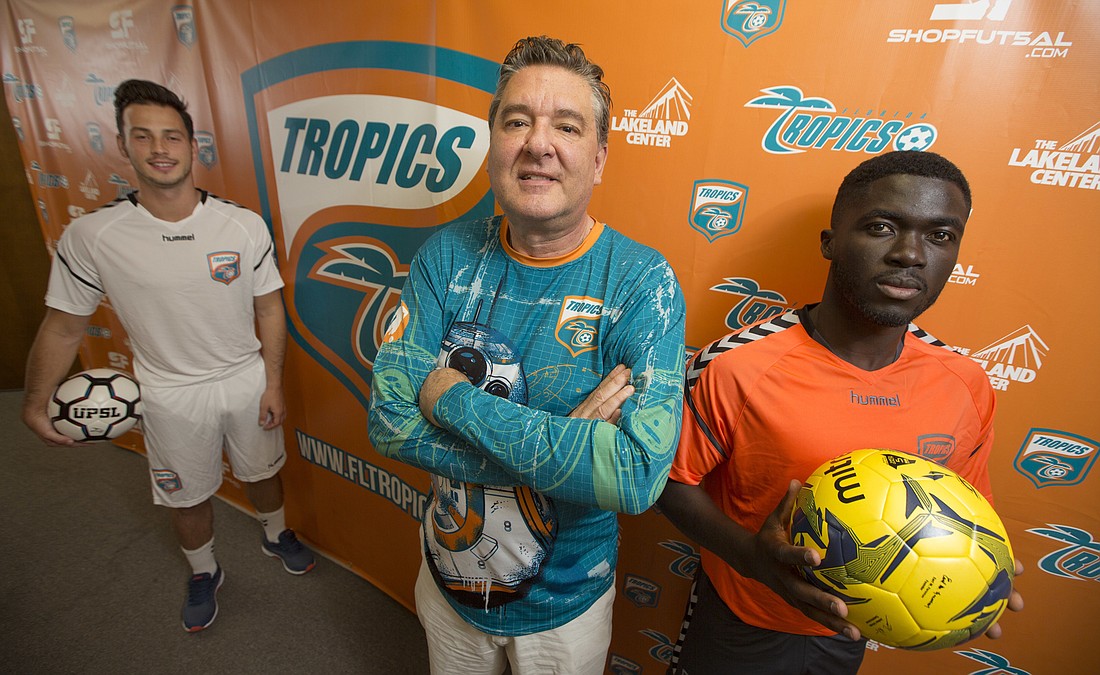- December 15, 2025
-
-
Loading

Loading

The business of soccer is making strides and the Florida Tropics don’t want to miss out on a surge in popularity.
Under the umbrella organization Florida Tropics SC, based in Lakeland, it continues to expand the brand. The most recent addition to the fold is an outdoor soccer team, under the Tropics name, which will play at Lake Myrtle Sports Complex in Auburndale. “To play at Lake Myrtle is a prelude to bigger and better things,” says Tropics COO Chris Economides, who adds that the professional soccer organization has grown exponentially since it began three years ago. “Lake Myrtle is a beautiful complex and we want to try and transform the main field into a nice venue. We want to make it a festive night out.”